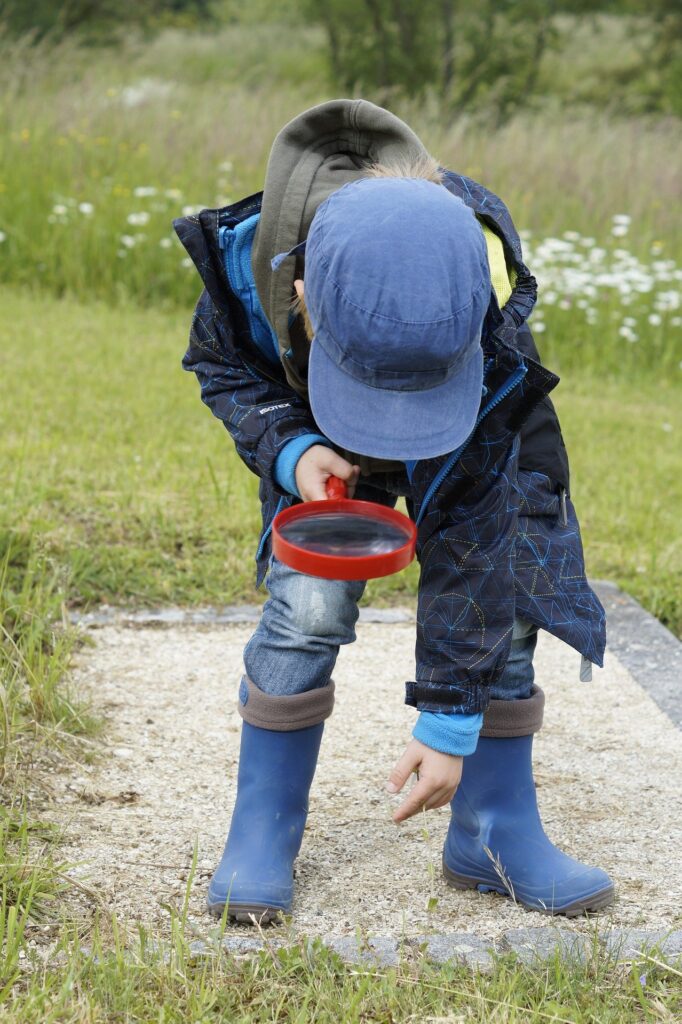
Curiosity: a strong desire to know or learn something; a willingness to explore and seek new opportunities and solutions.
Just ask a question
How much of a child’s time is spent asking questions?
About 70 to 80% of the time they’re talking, according to the authors Tom Pohlmann and Neethi Mary Thomas in their Harvard Business Review article, “Relearning the Art of Asking Questions.” https://hbr.org/2015/03/relearning-the-art-of-asking-questions
How often do you think adults ask questions?
About 15 to 25% during their conversations – about a third less than kids!
Although leaders might say they treasure inquisitive minds, in fact most stifle curiosity, fearing it will increase risk and inefficiency. In a survey conducted of more than 3,000 employees from a wide range of firms and industries, only about 24% reported feeling curious in their jobs on a regular basis, and about 70% said they face barriers to asking more questions at work.
Slow Down!
In a hyper-paced world, it has become increasingly difficult to slow down to ask questions and explore options. Curiosity is stripped from many of us early in our lives. We learn to stop asking, to go along, to follow others without question. We get consumed with being busy, engaging in activity vs. using our brains well. We create limiting constraints (or negative thought bubbles) that stop us from pondering possibilities, choices, and alternatives as we jump too quickly to conclusions and actions.
Studies have shown that being open to new experiences, asking questions, and searching for answers keeps your brain active and alert. The mind is like a muscle: it becomes stronger with exercise, and there is no better mental exercise than curiosity.
Curiosity is much more important to an enterprise’s performance than was previously thought. It is the spark that can lead to breakthrough innovation. And it turns out that it helps produce more than new ideas. Research by Francesca Gino https://hbr.org/2018/09/the-business-case-for-curiosity at Harvard Business School points to several surprisingly practical benefits for business.
- Cultivating it at all levels helps leaders and their employees adapt to uncertain market conditions and external pressures. When our curiosity is triggered, we think more deeply and rationally about decisions and come up with more-creative solutions
- Curiosity reduces our susceptibility to biases, stereotypes ,and to confirmation bias
- Curiosity fuels employee engagement and collaboration by inspiring employees to develop more-trusting relationships by engaging in conversations that discover new, better ways of working
- Curiosity fortifies organizational resilience by prompting problem solving in the face of uncertainty and pressure.
In short, curiosity boosts business performance.
Free Your Mind
There are numerous barriers to curiosity.
- Judgment blocks the freedom and openness necessary for curiosity. Self-judgment, our voice from within that tells us what acceptable thoughts and behaviors are often get in our way. Judgment from others and collective judgment that come from media and culture tend to be focused on more negative than positive.
- Our individual beliefs and perceptions often stop us. When we think we know the truth or the obvious right answer, exploring and learning no longer seem necessary.
- Excessive confidence/arrogance limits curiosity. A person with overwhelmed confidence believes strongly in their opinion and often cannot consider what is beyond that. They don’t wonder about others’ opinions or perspectives and stop seeking new answers.
- Fear of the unknown leads to caution. We often feel safe in our routines and do not desire more change. Our brain likes what it is most familiar with. Change can seem scary and reckless since exploration for new things may lead to the discovery of an unfamiliar situation.
- Apathy or indifference towards something certainly lessens ones curiosity. When we feel tired, stretched too thin, or overwhelmed we often check out to save energy.
We can improve curiosity in ourselves and others.
- Hire for curiosity and learning agility.
Individuals with learning agility are specific, admit mistakes, candid, aware of impact on others, see complexity, focus on problem solving, and have a broad range of interests.
- Model inquisitiveness
Ask questions, pause, and ponder possibilities periodically.
Ask “Why?”
Use “Why?” “What if…?” and “How might we…?” regularly to test ways of working and thinking that have been in place for longer than a year or for anything everyone else does that way.
As Neil DeGrasse Tyson said: “the people who don’t ask questions remain clueless throughout their lives.”
- Get comfortable saying “I don’t know” more often. It will encourage yourself and others to acknowledge uncertainty, be at ease with it, and figure out what to do. It opens your brain and the brains of others to pause and explore.
- Emphasize goals for both accomplishments and learning
Get clear on winning with specificity to trigger your brain to prove yourself right.
Be Intentional
Set goals for learning.
Regularly focus on learning something new. Try a new experience. This could be consuming a different media, traveling to a new location, reading, or watching a book or movie of a different genre, or even eating a new food. You’ll not only get out of potential rut, you’ll also get exposure to something new that can give you a different outlook.
- Practice changing perspective intentionally
Broaden your networks in and outside of work. Eat lunch with co-workers in other departments. Do volunteer work in a new community or neighborhood. Changing perspectives will broaden your options to choose from.
- Encourage and seek diverse data
Read a diverse variety of information, look in different industries, and share trends. To put together dots in new ways, you have to gather dots first.
- Show interest in and be responsive to others
We’re In this Together
Ask yourself what you can learn from others.
Don’t worry about curiosity killing the cat or derailing you and your projects at work. The opposite happens and it’s more interesting!
So what will you do to become more curious and help others develop it as well?








